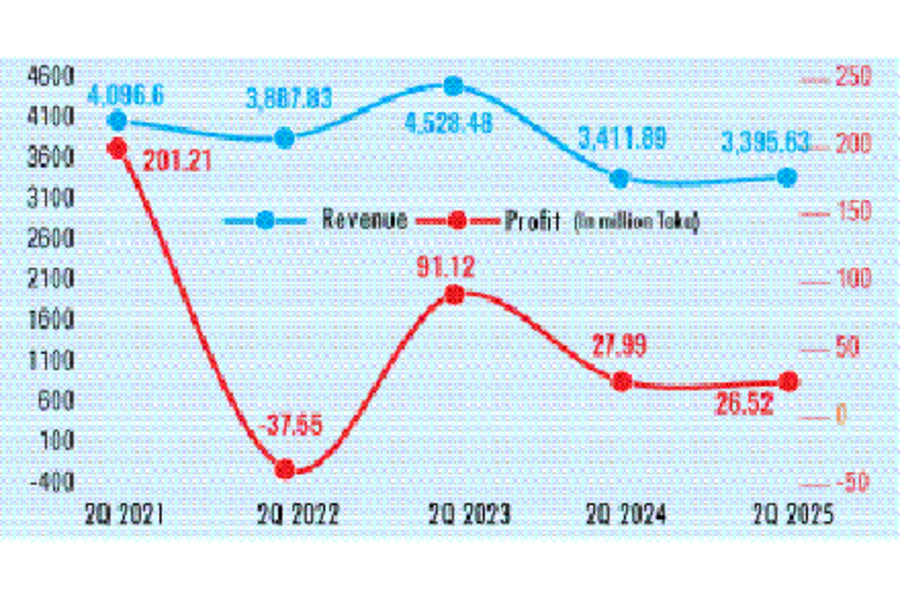
Published :
Updated :

Heidelberg Materials reported a 5.26 per cent year-on-year decline in profit to Tk 26.52 million for the April-June quarter this year due to what the company claims is lower sales and reduced profit margins.
The earnings per share stood at Tk 0.47 for the quarter to June, down from Tk 0.5 for the same quarter a year earlier, according to the company's earnings disclosure on its website on Saturday.
Although Heidelberg cites lower sales and a lower profit margin as reasons for the shrinking profit, its financial statement shows that deferred tax expense is mainly responsible for the reduction in profit.
It has reported a marginal 0.48 per cent year-on-year decrease in sales to Tk 3.40 billion for April-June. Despite the lower sales revenue, gross profit jumped nearly 30 per cent year-on-year to Tk 360.6 million in the second quarter to June this year.
The surge in gross profit amid the sales decline demands an explanation but it could not be known immediately after the disclosure.
Operating profit almost doubled in the quarter, compared to the same quarter last year, but Heidelberg had nearly Tk 22 million deferred income tax expense in April-June.
In six months (January-June), Heidelberg earned a 47 per cent lower profit of Tk 223 million, compared to the same period last year.
That means the company witnessed a larger year-on-year decline in profit in the first quarter than in the second quarter.
Sales were 6.42 per cent down in the six months to June this year, compared to H1 last year. The gross profit was reduced by 16.2 per cent in January-June to Tk 0.9 billion in H1 this year, compared to H1 last year.
Half yearly cash flow was Tk 10.14 in the negative per share, which was Tk 15.08 per share in the same period last year.
According to the company, NOCFPS squeezed for lower sales and collection amid higher payments.
Among listed cement companies, Heidelberg occupies the third position by market share behind LafargeHolcim Bangladesh and Crown Cement. It produces cement of two premium brands -- ScanCement & RubyCement.
The Bangladeshi market has become highly competitive and saturated as manufacturers have much higher production capacity than what is needed to
meet the domestic demand. The intense competition leads to price wars and subsequent pressure on profit margins.
Local companies, such as non-listed Shah Cement and Bashundhara Cement, leverage economies
of scale, aggressive pricing, extensive truck fleets, and robust distribution networks, which undercut the multinational operations, according to an emerging credit rating industry report 2023.
farhan.fardaus@gmail.com


 For all latest news, follow The Financial Express Google News channel.
For all latest news, follow The Financial Express Google News channel.